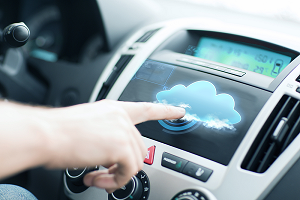
What would an Apple ‘iCar’ mean for the Aftercare Market?
Date: Fri 20th February 2015 | Author: Vince Brand
There are strong rumours circulating that several hundred Apple employees have been working on the iCar project (also referred to as Project Titan), one that was personally given the go ahead by Apple CEO Tim Cook over 12 months ago. In this post, we examine what it might mean for the car aftercare market.
It’s become clear with almost every product launch that Apple tend to create real change both in terms of industry practice and also raising the bar in what consumers come to expect and so if these rumours are true, the Apple iCar project will be no different.
Electric Car Warranties
Firstly we need to look at how aftercare differs for electric cars. The most obvious difference for an electric (or hybrid) car compared to a conventional machine is the battery and power unit. In fact, the majority of parts in electric and conventional cars are interchangeable and have similar expected lifespans, but the battery pack in most electric cars would likely need to be replaced in as little as 8 years. Many manufacturers of electric cars such as Tesla with the S and Ford with the Focus Electric simply refuse to cover the battery pack under their warranty:


This essentially means that even with very careful and proper use, the average electric car (bought today) will have a lifespan in the region of 8 years. However, although the battery at that point will be unusable in the car, it still holds value as a battery in other installations and for being recycled. Nissan for example, considered a new approach for their warranty with the LEAF in 2009 in that the customer only leases the battery and Nissan retains ownership, taking the battery pack back at the end of its lifecycle. Whilst this approach is probably what consumers would like to see and would enable them to avoid hefty bills at replacement time, none of the major electric car manufacturers offer this at the current time. That said, Toyota offer a 5 year or 100,000 mile warranty as standard which is larger than most on offer with a conventional car.
As such, it seems the market for aftercare specialists in this arena would be as important, if not more so than the current model. It will be interesting to see how this develops and is something AutoProtect is constantly monitoring to understand how what we offer can benefit the consumer, not just now, but in the future too.
Self-Driving Cars Warranties
Another aspect of car manufacture that is coming to the fore and we expect to continue to grow is the technology of self-driving cars. Google is probably the most well-known company to really invest a lot in this; however the product still isn’t available to the wider public. In the US, there are four states that allow self-driving cars (California, Nevada, Michigan and Florida as well as Washington DC) and as of January 2015, testing has begun on UK roads. This presents a very important question with regards to liability and simply who is liable should anything go wrong. For the purposes of this blog, we will focus on the warranty aspect of ‘liability’ rather than what would be considered in the case of an accident or damage from theft etc.
One distinction to be made is if this technology is offered direct from the actual manufacturer or whether a 3rd party, such as Google or perhaps Apple, installs it on an existing vehicle. Manufacturers have been including automatic braking and the ability to self-park for a number of years which are covered under their warranty so one would assume the same would be true for these systems, but the input of a technology ‘facilitator’ like Apple may complicate things. Put simply, if Apple added driverless technology to a Ford, would it be Apple or Ford who were liable for any faults?
From a 3rd party warranty perspective though, how would a driverless car affect wear and tear of a car? The general assumption is that a driverless car would have an improvement on these things and it’s easy to see why. There would be no aggressive acceleration and gear changes, the car would never break the speed limit or be over-revved and it probably wouldn’t even curb the wheels when parking.
Could it mean that potential issues could not be discovered until it comes to Service/MOT time, by which point they could have become more serious? As anyone who drives knows, often drivers can ‘feel’ when something is not right with their car and would get it looked at. Could a driverless system do this and if not, what impact would this have on any warranty schemes? It is, however, likely that a car built from the ground up by Apple (or Tesla as rumours suggest) would have significant sensors and instruments to detect mechanical problems.
Conclusions
If Apple were to make a fully-fledged car, one would assume it would be electric and would therefore have to face the same problems as other manufacturers and their customers are facing. However, because it’s Apple one could assume that the company would offer a standard warranty in line with its other products and most likely an ‘AppleCare’ type extended warranty.
Again, knowing what we do about Apple and how they famously dislike anyone other than themselves repairing or modifying their products, they may not officially endorse any 3rd party warranty schemes built on the data provided by their sensors. This would present challenges for companies like AutoProtect but ones we’re ready for – we continue to innovate and diversify our products in line with trends and changes to the industry, and this would be no different.
We can safely say whatever happens, we’ll still be focussing on taking our bite of the apple(!), to provide consumers with the choice and freedom they deserve.










